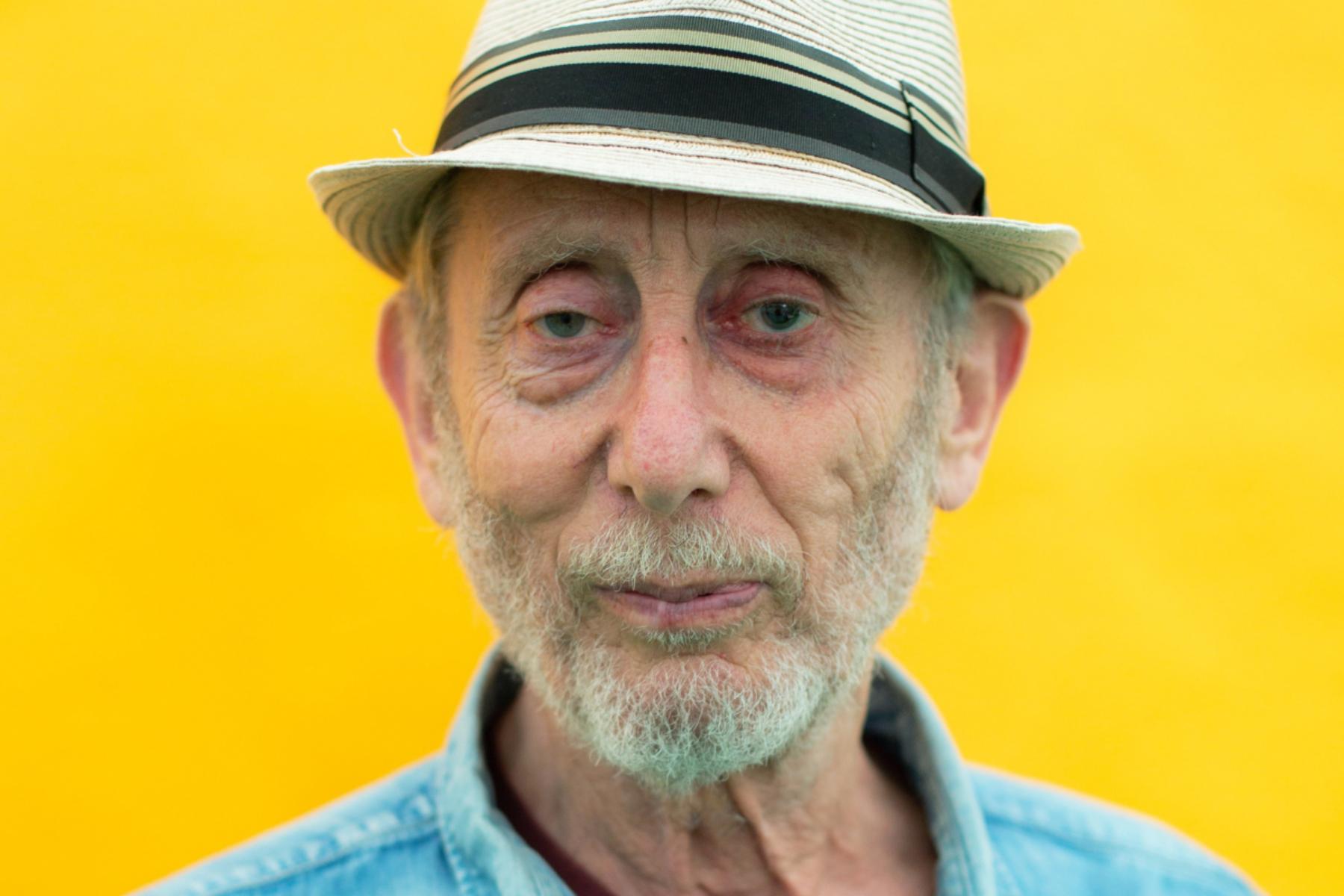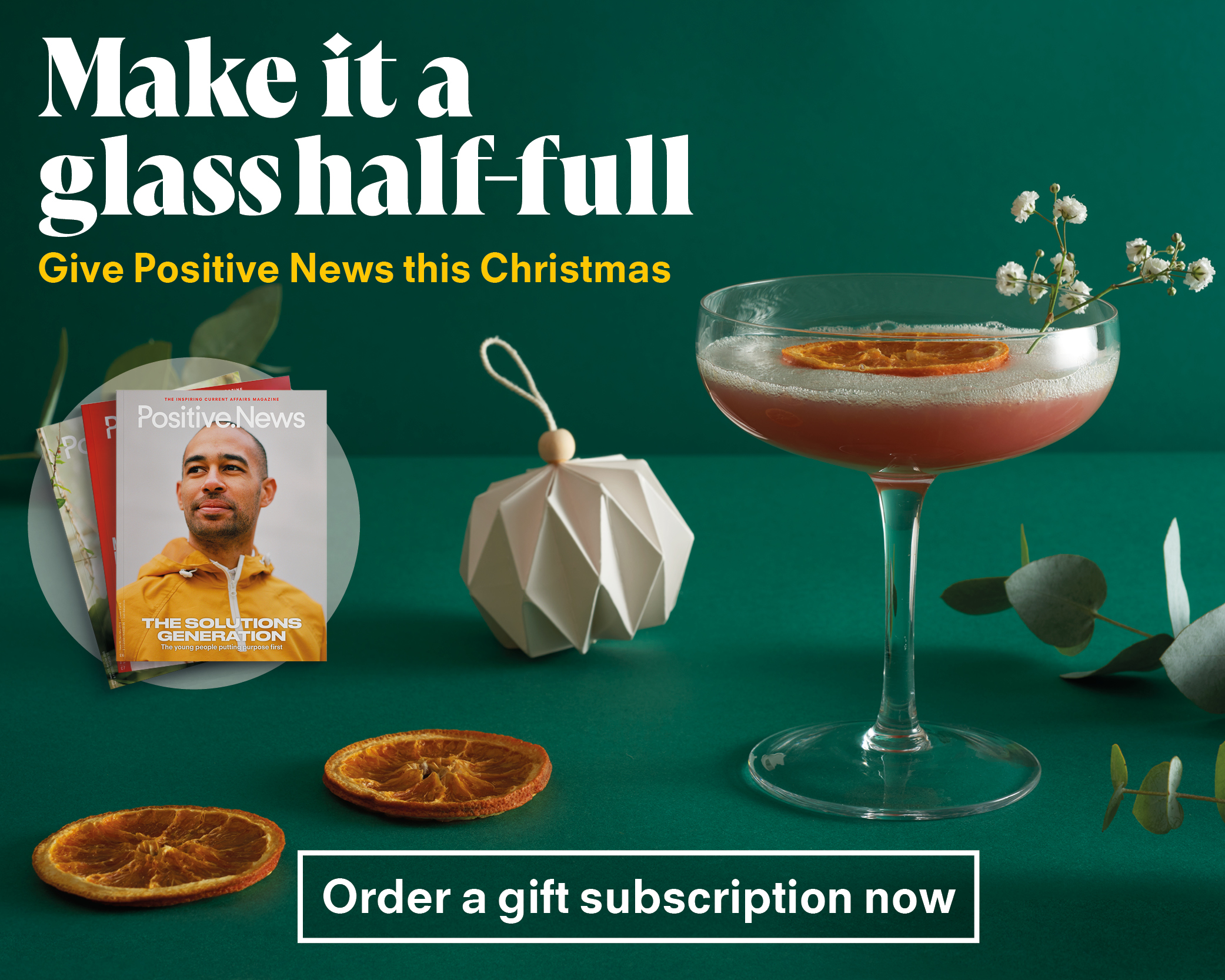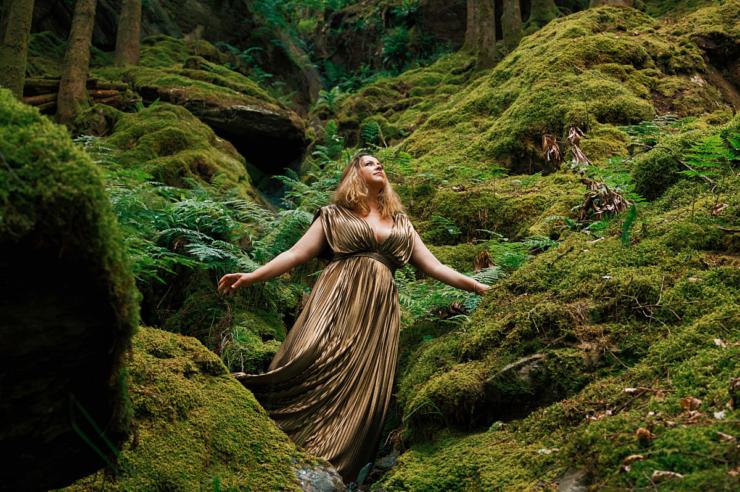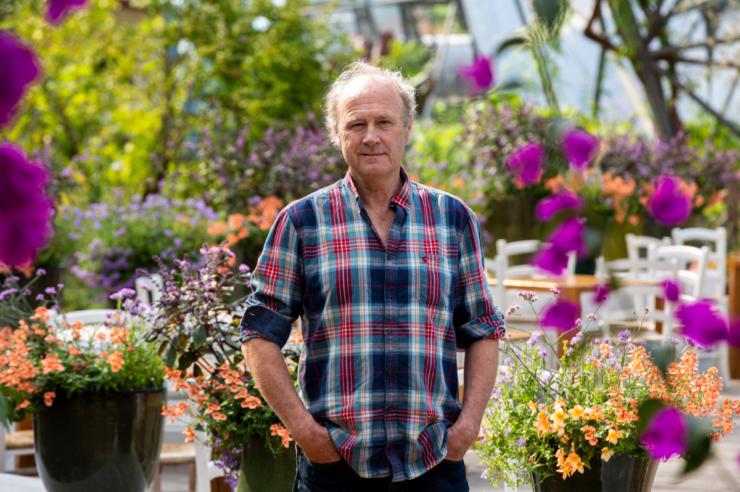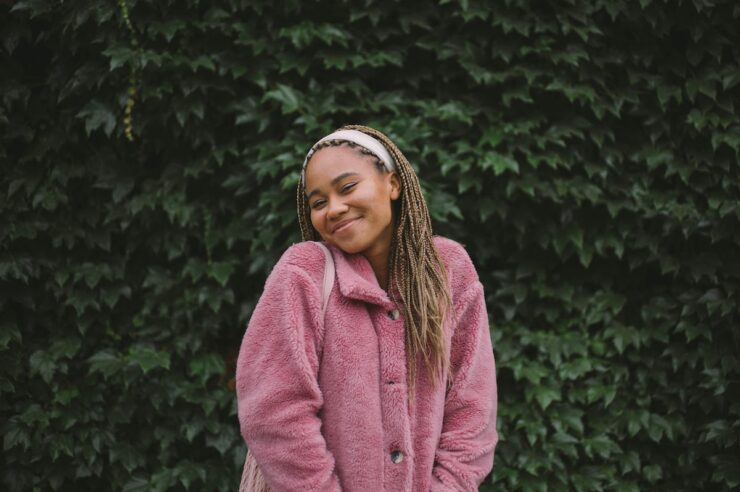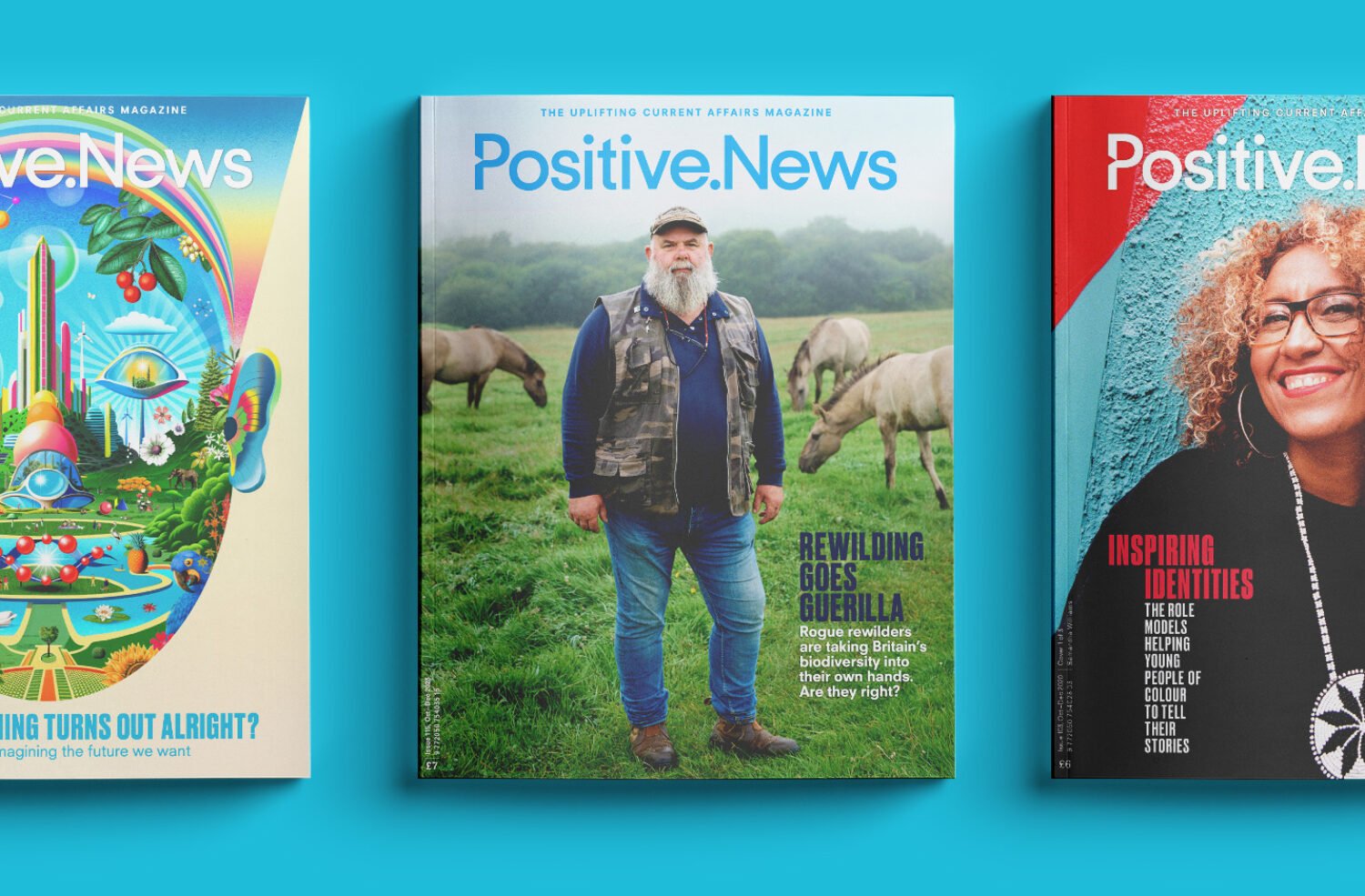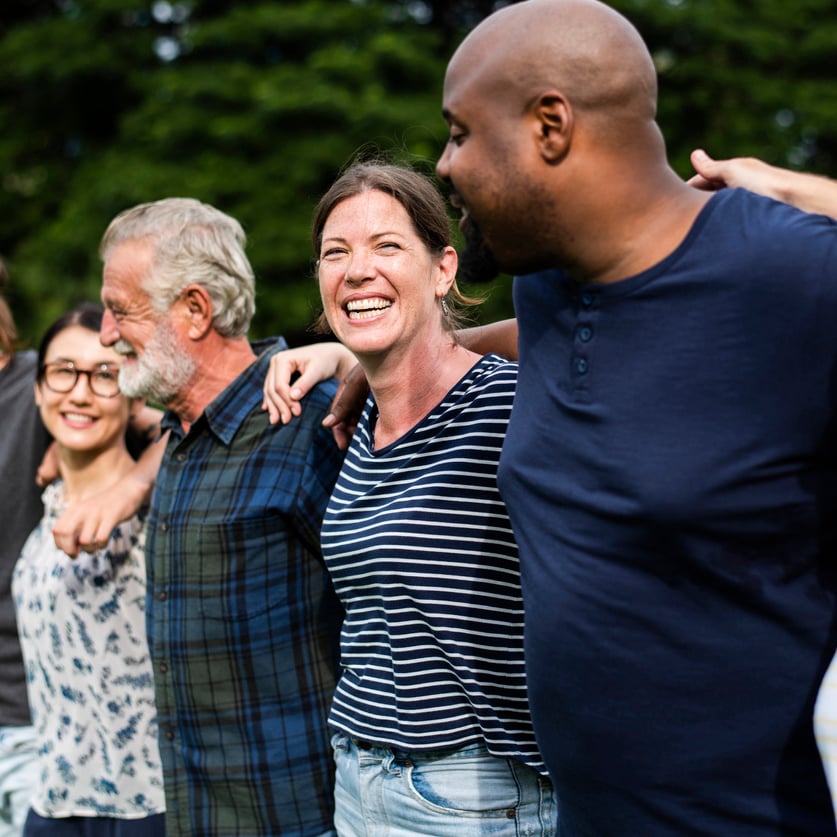The writer and broadcaster on how deep breathing has served him since his dangerous brush with Covid-19, having parents who were ‘addicted’ to curiosity – and why chickpeas are worthy of our adoration
Michael Rosen has been writing and performing for children since the 1970s. He was born into a Jewish family in Harrow, Middlesex, trained briefly as a medic and worked as a secondary school teacher before committing to writing full time. He has written more than 150 books of stories and poetry for children and served as children’s laureate. He spent 48 days in intensive care after contracted coronavirus. He lives in north London with his third wife, and has four children and two step-children.
My morning ritual is …
First I do some stretching of my neck and back and legs. I’m usually dashing out the house going off to a school or something like that, but if I’m lazing about at home, I’ll have oats with some dried fruit, fresh raspberries, and I pour cold water on it. I don’t like the taste of milk.
I feel optimistic …
That there are many people who feel that the best way to overcome their problems is to get together with other people. I think when we’re isolated, it’s very easy to become depressed and hopeless. Whereas if you get together with other people, all sorts of slightly unpredictable things start happening. So it’s a very fruitful thing, and it starts producing all sorts of interesting ideas.
What makes me angry…
People being horrible to each other, really. It’s quite simple. We’re living in a time where people in power are quite often pointing the finger, like Suella Braverman saying that sleeping on the street is a lifestyle choice. Comments like that are meant to set one group of people against another, and that’s not a good thing.
If I wasn’t a writer and poet, I’d have liked to become …
An actor or theatre director. I love acting. I love theatre, and in a way, what I’ve devised for myself is a kind of one-man show that I act out when I’m performing in schools and so on. On stage, you can see something quite physical in the way the audience responds. People sort of pass their laughs from one to the next. It’s very immediate, in a way that writing isn’t.
The habit that has served me best in life is …
Deep breathing. It’s more useful than people realise. It’s very good for when you’re walking about. It’s very good for relaxing. It’s good for getting sleep. It’s good for waking up. It’s good for giving yourself space and time to think. I discovered it after I had Covid-19. I was in a coma for more than 40 days, and I was so weakened I couldn’t stand up or walk. I had to teach myself to breathe, because my diaphragm had forgotten how to operate. We often just breathe with the top 10 or 20% of our lungs. So, although it’s a very physical thing, breathing seems to have a kind of emotional, behavioural consequence. It’s very powerful and can bring about quite extraordinary changes.
The habit I’ve successfully kicked …
I don’t drink tea or coffee. I did love half a pint of black coffee in the morning, and I was probably getting a bit addicted, before I became ill. And then partly because I was waking up a lot in the night, I thought: ‘Why bother?’ It helps. These days I mostly drink hot water with a slice of lemon.
If you get together with other people, all sorts of slightly unpredictable things start happening
When things get tough I …
Write. It has always proved helpful to me because when I’m doing it, it feels either like a complete distraction, or if I’m writing about the problem, like disentangling stuff. And when I’ve done it there’s a sense of release and relief. Not that it’s dealt with, but that it feels liveable with.
The big thing I’ve changed my mind about in life is …
In the past I thought that I had some responsibility to speak out about things. Whereas now, I think that because I don’t represent anybody, nobody voted for me, really it doesn’t matter what I say. And in some respects, it’s better if I keep quiet. I might watch things on telly and get quite engaged by it, but then I think: ‘If there’s somebody who’s actually done a lot of legwork and been to places and investigated things, that’s fair enough [for them to comment]’. I’m just somebody who’s crawled across the surface of some of this planet for 77 years.
My parents taught me …
To be curious. That was the key thing. Both of them were almost drunk on, addicted to, curiosity. They never stopped trying to find out things and were constantly talking about what they’d found out. It was very strange, my friends used to come over and be overwhelmed by it.
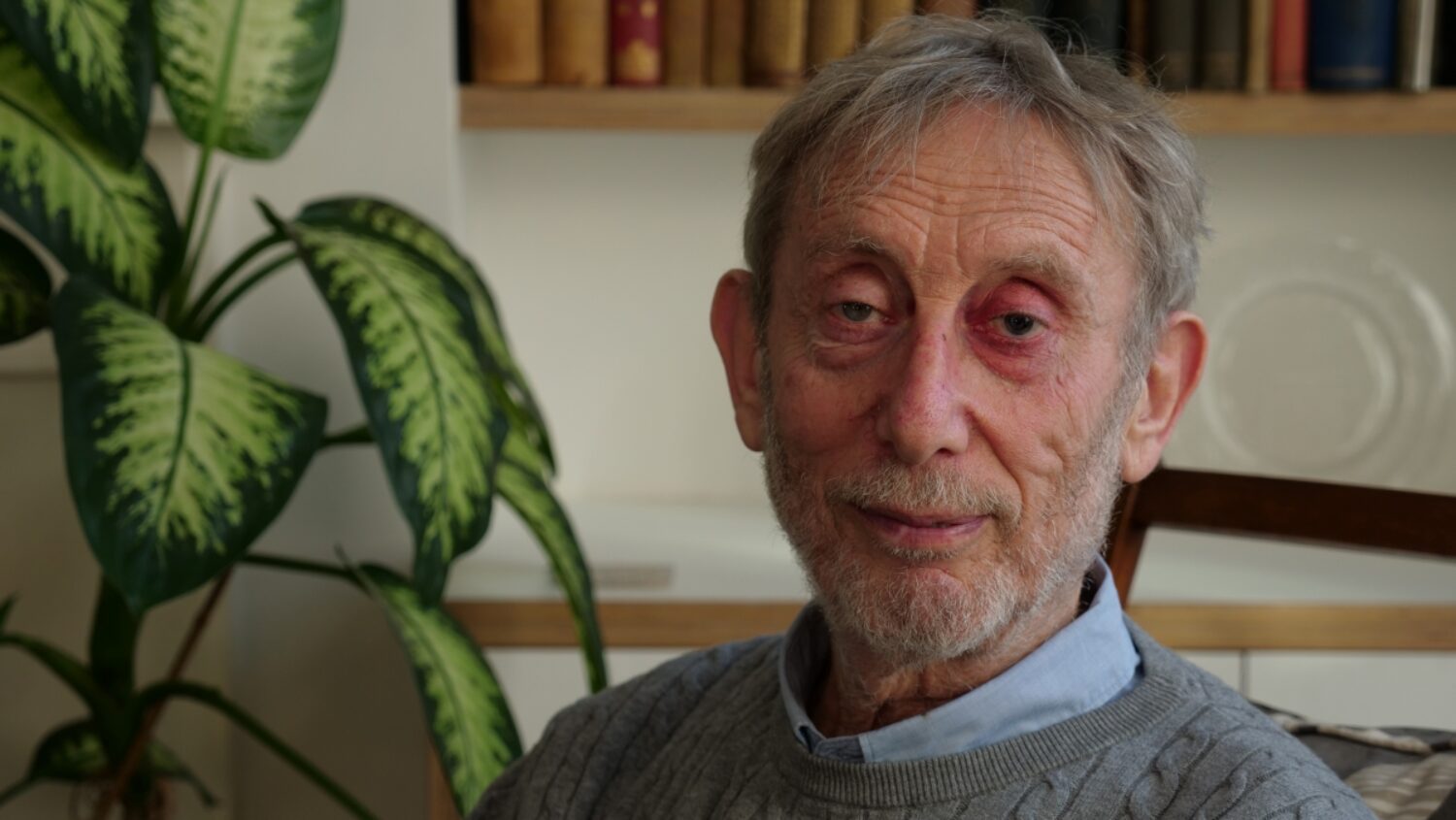
'My parents taught me to be curious. That was the key thing,' Rosen told Positive News. Image: Helen Weinstein
I have this theory that …
The chickpea should be enthroned somewhere as the Great God Chickpea. I mean, falafel, hummus, chana masala … Incredible! OK, you’ve got a few other ingredients in there, but at their core is just the noble chickpea. It’s sensational in any form. There should be a glass case somewhere with a chickpea in it wearing a crown. And we would go past and say: ‘Chickpea oh chickpea, where would we be without you oh, chickpea?’
My sources of joy are …
Arsenal winning – that’s very joyful. Since the coma, it’s been a big challenge for me to go to a shop, remember what it was that I went in for and come back home with it. And so I make it a challenge. I write the list down and I have to really remember to look at it and tick everything off. And if when I get home, if I have remembered everything, it’s a moment of pure exultation. I wave my hands in the air and go: ‘Yes! I remembered the cat food!’ We have to take pleasure in small things.
I’d like to tell my younger self …
It’s a tragic one, I’m afraid. I wish I’d known more about meningococcal septicaemia, which is what my son died of. I sat there in the house thinking he had flu and then in the morning, he was dead. The sad thing is that I had taken his stepsister to the hospital just a few weeks earlier because I was sure she had it. She had a stiff neck and a headache and was sick, so I rushed her to the hospital and she hadn’t. And then just a few weeks later Eddie, who was 18, had a high temperature, but he didn’t have a stiff neck and he wasn’t sick. I asked him to take paracetamol. Nobody said – and they still don’t say it – that for some people, the rash only shows in the armpits and groin. And when I looked at Eddie’s dead body, the only place where he had the rash was in his armpits.
I write to the meningitis charities every year: ‘Why don’t you put that?’ and they say: ‘Oh, it’s in the extra page, it’s on the other page.’ And I’ve totally failed in making this clear. I just wish that I’d known that. So, there we go. It’s a sad, tragic thing. I don’t exactly blame myself, but I feel bad about it.
Read Michael Rosen’s latest books: Getting Better, published by Ebury, Many Different Kinds of Love published by Penguin, and The Advantages of Nearly Dying published by Smokestack.
Main image: Michael Rosen at Hay Festival, by Billie Charity
You’re the solution that Positive News needs
Our small, dedicated team is passionate about building a better alternative to the negative news media. And there’s never been a greater urgency to our mission.
But to invest in producing all the solutions journalism that the world is longing for, we need funding. And because we work in your interests – not those of a wealthy media mogul or corporate owner – we’re asking readers like you to get behind our team, by making a regular contribution as a Positive News supporter.
Give once from just £1, or join 1,400+ others who contribute an average of £3 or more per month.
Join our community today, and together, we’ll change the news for good.
